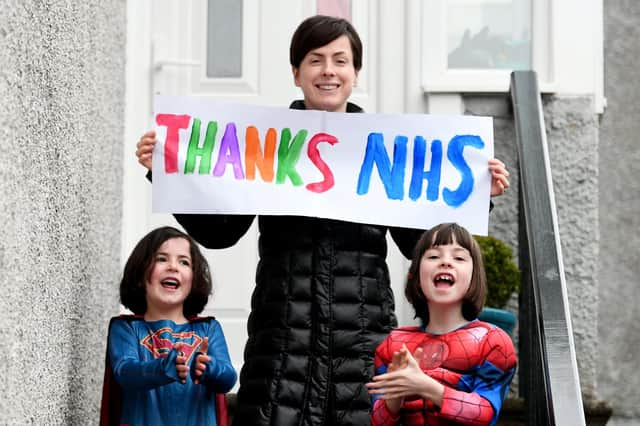The importance of gratitude - Alexander McCall Smith


There were dire warnings then about the failure rate of vaccines and the time it normally took to develop one that offered any real protection. Five years was mentioned; ten by some. Others warned that we might never find anything that worked.
Problems and disappointments may still lie ahead, but most of us are in the mood for good news and are seizing upon this with the hunger of the famished. Of course, there have been other bits of good news in the last few months, including the likelihood of the revival of the Paris climate accord. Our house, on fire, at least now has somebody paying attention to the fire bells, and there are other signs, if we look hard enough, of a return to a spirit of rational co-operation in human affairs. Having flirted with chaos, we see, perhaps, more clearly than ever, the advantages of stability and reason.
Advertisement
Hide AdAdvertisement
Hide AdBut the vaccine is solid good news for which we should be grateful. And the expression of this gratitude is rather important. At the beginning of this nightmare, there was a spontaneous and moving outpouring of gratitude directed to the NHS. Nobody who witnessed the clapping that broke out each Thursday could have been in any doubt about the genuineness of what they saw. That gratitude came from deep wells within people, many of whom may have not had many opportunities to say thank you in the past. Our society does not do gratitude particularly well. We are vocal on entitlement; we are strong on blame and retribution; but gratitude is a register with which we feel vaguely uneasy. A lot of people, it seems, find it difficult to say thank you.
The arrival of the vaccine should be an occasion of gratitude – not just of the thank heavens variety, but directed towards those who deserve to be thanked. Who are they? The various governments that have been responsible for encouraging the search for a vaccine? There are no doubt politicians who are anxious to claim the credit, and one or two who have been undeservedly keen to do so. Yet the money devoted to vaccine projects was not their money but ours – public money. So, do we thank the pharmaceutical industry?
Big Pharma is used to being criticized for excessive profits. It defends itself on the grounds that the sums invested in research are mind-boggling and always at risk of failure. Two years ago I visited a large American drug company and was told that they had just spent one billion dollars on a failed dementia drug. For the fourth time. They were prepared to spend another billion. “Someone will get there,” they said. “It’s expensive, but they will.”
They take the risk and when drugs turn out to work they reap the benefits. The argument, though, is about how much benefit should be reaped and at whose expense. And what about circumstances where public money is given to private concerns to do the necessary research? This is the case with Astra Zeneca. The company is to be applauded for saying it will not seek a profit on their vaccine during the currency of the epidemic, an admirable stance. Yet a great deal of public money has been provided for the development of the vaccine and concern has been voiced about future pricing and the large profits that might later be made on this public investment.
So, who else is there to whom we can express our gratitude? Above all others, it is the University of Oxford and the doctors and scientists of the Jenner Institute. It is these people who are the real heroes. And not only the tireless Oxford team, but others in a thousand different labs and clinics all over the world. All heroes in one way or another.
Which leads to a poem of gratitude. Gratitude needs to be expressed. A poem can sometimes seem the right way of doing just that. The title, simply:
Vaccine
Not belonging to any one and separate group
Nor to a particular place, this delicate
Creation of biochemistry
Is a symphony devised by many:
As much by the epidemiologist
In places we’ve never heard of;
As by the immunologist
In well-set seats of learning;
Or by the virologist
In some remote settlement where
Poverty and its cousin, disease,
Flourish with grimy impunity;
By all these -ologists, anonymous
For the most part, exhausted now
After a long year of effort:
It belongs to them.
It is not a single note we hear,
But the product of an extended
Scientific orchestra, playing together,
To which many belong, but who all
Play selflessly from science’s score,
Under which a postscript reads:
Remember what we can do
When we act together as friends,
Joined in common humanity:
Dal capo al coda –
From the beginning to the additional
Bars at the end, at the very end.
Sometimes we may not hear
The music they make, it being
Performed in the background, marked piano,
Rather than forte; until suddenly
It soars and announces itself,
And we hear it more clearly
Played con brio by tutti:
The sound of science,
The sound of the healing endeavour,
With a glorious and moving chorus:
We want you to have this:
To those in need
It will be free; it will be free.
A perfect note on which
To end a symphony
That began lacrimoso
And ends, we hope, maestoso.
Comments
Want to join the conversation? Please or to comment on this article.